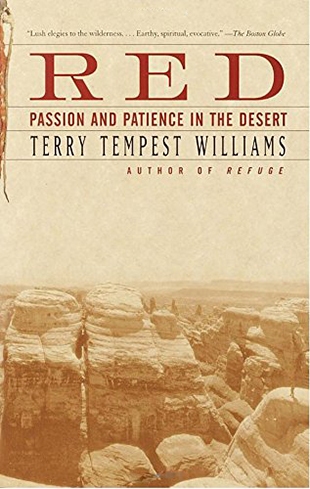Terry Tempest Williams lives in Grand County, Utah. She loves the desert redrock canyons there and sees them as holy places. In this landscape of extremes, Williams has learned to be a celebrant of earth, fire, and water. Her intimate relationship with the desert is erotic — no wonder she can write of the place with such exquisite passion and poetry.
This volume draws together two of her earlier works, Coyote's Canyon and Desert Quartet. Williams has written some new essays as well and includes excerpts from her testimony before Congress on behalf of wild places that need protective legislation.
At one point, the author notes: "As the world becomes more crowded and corroded by consumption and capitalism, this landscape of minimalism will take on greater significance, reminding us through its blood red grandeur just how essential wild country is to our psychology, how precious the desert is to the soul of America."
Reading these pages, it is easy to see why Williams has been called one of America's finest writers. With elegance, she demonstrates for us the spiritual practice of reverence with essays on the relationship between language and landscape, the music of rivers, the rhythm of slowness, the night sky, the color red, and watching light. She concludes this lyrical work with the following words: "The eyes of the future are looking back at us and they are praying for us to see beyond our own time. They are kneeling with hands clasped that we might act with restraint, that we might leave room for the life that is destined to come. To protect what is wild is to protect what is gentle. Perhaps the wildness we fear is the pause between our own heartbeats, the silent space that says we live only by grace. Wilderness lives by this same grace. Wild mercy is in our hands." Amen, sister.
